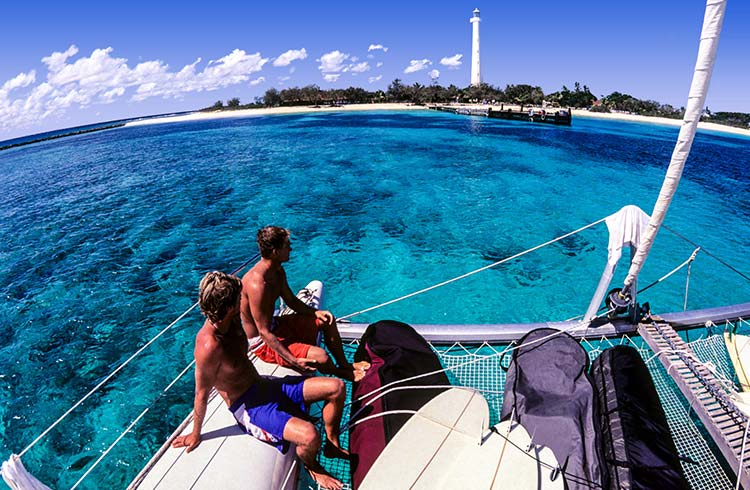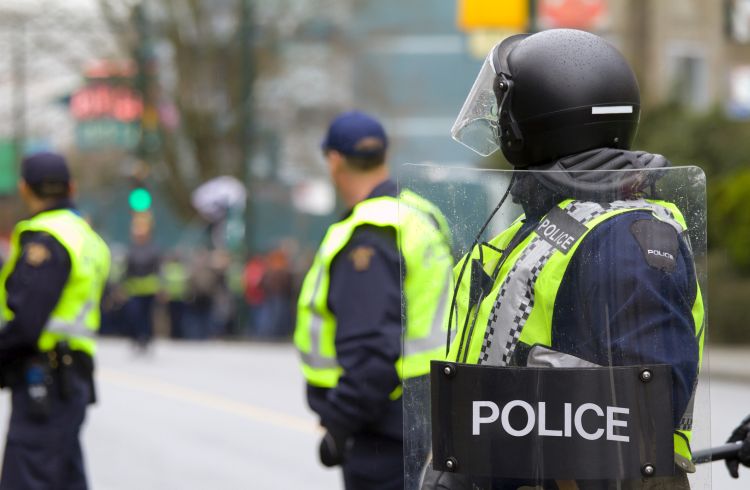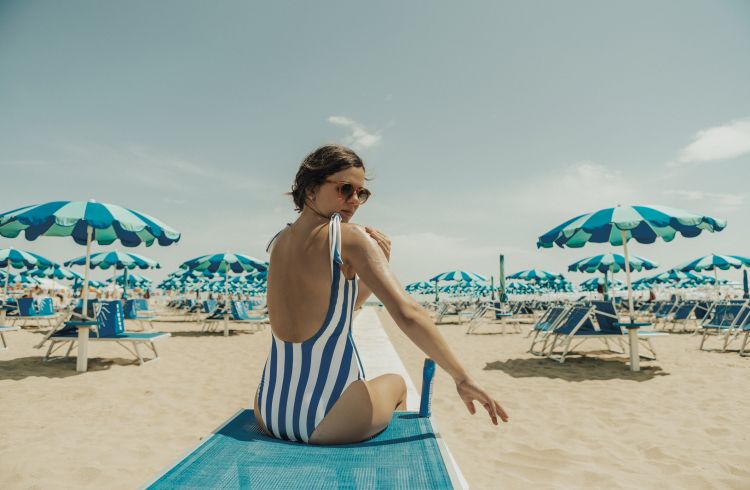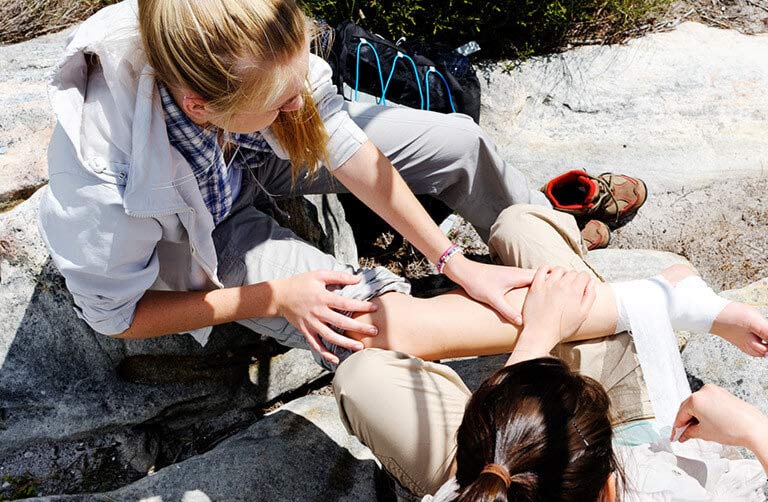Is New Caledonia Safe to Visit? 9 Safety Tips for Travelers
Coronavirus (COVID-19) and travel: The situation around the world is changing dramatically. Various governments have changed their travel warnings to restrict travel during this time. To understand how this may impact cover under your policy, please go to our FAQs and select your country of residence.
For the latest travel warnings and alerts around the world, read about lockdowns and border restrictions.
How safe is New Caledonia in 2024? Our travel safety expert answers all your questions, from social unrest to crime, health hazards, and local laws. Here's what you need to know before you go.
 Photo © Getty Images/John Seaton Callahan
Photo © Getty Images/John Seaton Callahan
- Updated May 16, 2024 with information on the ongoing protests -
Of all the Franco-islands in the Pacific, New Caledonia is perhaps the most French, due to a large expatriate population – who are mostly government employees sent to administer affairs of state. It's those people who demand fresh berries from the south of France and imported flour to make sure the patisseries are just like at home.
But New Caledonia has a history and culture all its own. Here's what visitors need to know to stay safe and get the most from their trip.
- How safe is New Caledonia?
- Crime and scams in New Caledonia
- Local laws in New Caledonia
- Health and medical treatment in New Caledonia
- Hospitals and medical evacuation in New Caledonia
- Scuba diving safety tips
- Can I drink tap water in New Caledonia?
- Getting around New Caledonia safely
- Cyclone season in New Caledonia
How safe is New Caledonia?
Ordinarily, travelers in New Caledonia experience a safe, laid-back South Pacific paradise. However, there has long been tension between the indigenous Kanak population – many of whom seek independence – and the French. These tensions recently erupted into violence over a proposed electoral reform that would allow French residents who have lived in New Caledonia for ten years or more to vote in provincial elections. Due to rioting, the airport was closed on May 15 and a state of emergency was declared, to take effect on May 16 and last at least 12 days.
Travelers are advised to reconsider their need to travel to the capital city of Nouméa and exercise a high degree of caution elsewhere in New Caledonia. Authorities recommend avoiding large public demonstrations. Travelers should monitor local media to stay informed of the situation.
Crime and scams in New Caledonia
Under normal circumstances, serious crime in New Caledonia is rare, and violent crime directed to tourists is just about unheard of. But petty crime and theft does occur. Don’t tempt fate by leaving an expensive camera in full view on the beach or on the front seat of your rental car. Always, everywhere, take care of your valuables.
To contact the police, call 17 or 1022. Always get a police report if you need to report a crime.
Local laws in New Caledonia
You're required to carry photo identification at all times. Leave the passport locked up and take a photocopy or your home driver's license – you will not get detained if you are not carrying ID but it's best to have it on you at all times to avoid trouble.
Possession of even small amounts of illegal drugs is a serious crime, and punishments result in fines or going to jail.
Buying or possessing counterfeit or pirated goods is also illegal and can result in heavy fines.
Health and medical treatment in New Caledonia
Hygiene and sanitation standards are good in New Caledonia's resorts, but they may be less so when you venture out to the outer islands. While the vast majority of visitors don't need to be concerned about water-borne disease and parasites, adventurous travelers should be cautious and carry a medical kit when going off the beaten track.
However, dengue fever, Zika virus, and chikungunya are common in the warm and wet months of January to May. There's currently no travel vaccine for dengue or Zika, so do your best to avoid mosquito bites – wear long loose-fitting clothing, cover exposed skin in insect repellent day and night, and make sure your room is mosquito-proof (otherwise, sleep under a mosquito net0.
Tip out any stagnant water you see sitting around your accommodation.
Leptospirosis outbreaks are also common after heavy rainfall. To help prevent infection, wear waterproof footwear, avoid swimming in rivers, and store food in enclosed containers to protect against rodents.
Hospitals and medical evacuation in New Caledonia
If you do get sick or have an accident, the three hospitals on the main island, Grand Terre (the locals call it “Le Caillou” - the pebble), can treat routine ailments and handle most emergencies very well. But if you don't have travel insurance, expect to pay upfront – and pay a lot! Costs for medical treatment in New Caledonia are high.
If you require complex treatment you'll need to be evacuated to Australia, which is 930mi (1,500km) to the west, so be prepared for a huge medical evacuation bill.
In a medical emergency, call 15 or go directly to the hospital.
Scuba diving safety tips
Scuba diving is a popular activity all over New Caledonia, but there's only one decompression chamber, in Nouméa. If you're on an outer island, it's going to be a while before help arrives or you can be transferred to Grand Terre, and it's expensive.
Can I drink tap water in New Caledonia?
Tap water in Nouméa and most resorts is safe to drink, but your other option is to boil water (for at least one minute) or carry water purification tablets when visiting the outer islands. Ask your accommodation staff if the water is safe to drink in case there's contamination.
Getting around New Caledonia safely
You can rent a car, 4WD, scooter, motorbike, or bicycle. To rent a car, your driver's license from home is all you need (provided it’s officially translated into French) or an international driver’s license. But if you decide to try your hand at a motorcycle or scooter, consider travel insurance and be sure to comply with its requirements, such as riding with a helmet and being appropriately licensed to ride in your home country. Being on holiday doesn't magically give you the right (or ability) to ride on two wheels.
In normal times, Nouméa and Greater Nouméa are widely serviced by the local bus network, Tanéo. Taxis are about four times more expensive then catching a bus. To hire a taxi, call +687 28 35 12.
For longer journeys on Le Caillou, the long-distance coach network offers 25 routes.
Cyclone season in New Caledonia
Tropical storms and cyclones (hurricanes) are common November to May, but storms can happen at any time. Because there is limited capacity to leave New Caledonia by commercial flight, it’s possible you may have to ride out the cyclone or storm. Your hotel will advise you on where to take shelter.
Get a travel insurance quote for New Caledonia
You can buy at home or while traveling, and claim online from anywhere in the world. With 150+ adventure activities covered and 24/7 emergency assistance.
Related articles
Simple and flexible travel insurance
You can buy at home or while traveling, and claim online from anywhere in the world. With 150+ adventure activities covered and 24/7 emergency assistance.
Get a quote


2 Comments
Price
I'm from new Caledonia, I born their and this thing is the worse thing I've ever read about my country, everything is wrong... The guy who wrote that probably don't even know where is new cal...